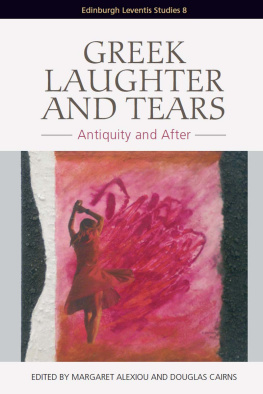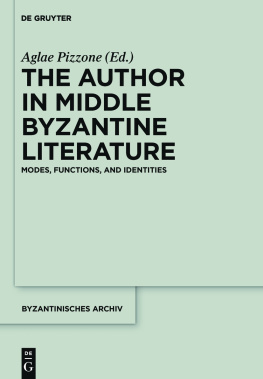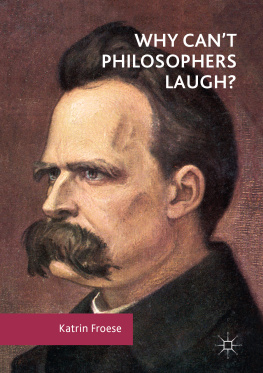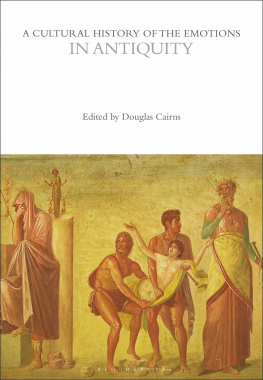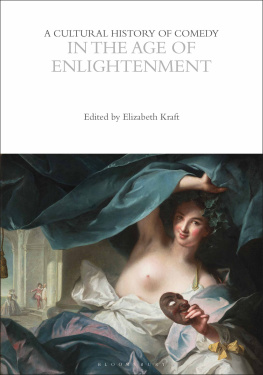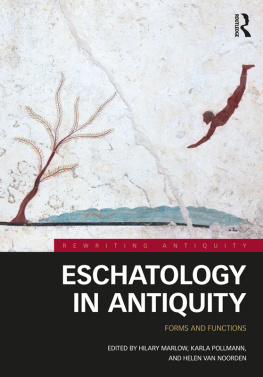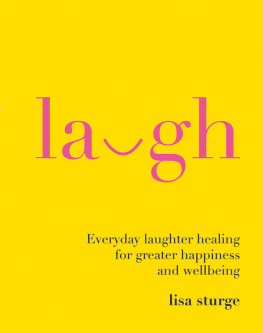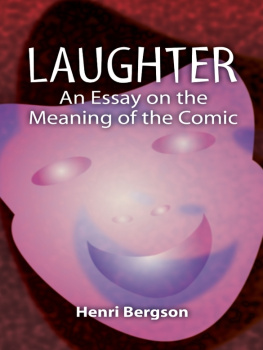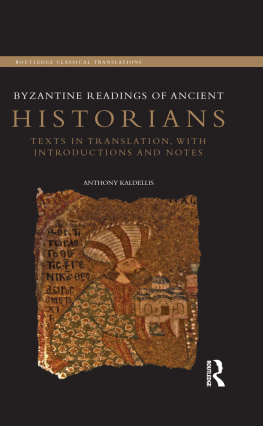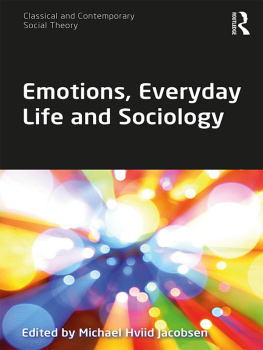EDINBURGH LEVENTIS STUDIES 8
Previously published
Edinburgh Leventis Studies 1
Word and Image in Ancient Greece
Edited by N. Keith Rutter and Brian A. Sparkes
Edinburgh Leventis Studies 2
Envy, Spite and Jealousy: The Rivalrous Emotions in Ancient Greece
Edited by David Konstan and N. Keith Rutter
Edinburgh Leventis Studies 3
Ancient Greece: From the Mycenaean Palaces to the Age of Homer
Edited by Sigrid Deger-Jalkotzy and Irene S. Lemos
Edinburgh Leventis Studies 4
Pursuing the Good: Ethics and Metaphysics in Platos Republic
Edited by Douglas Cairns, Fritz-Gregor Herrmann and Terry Penner
Edinburgh Leventis Studies 5
The Gods of Ancient Greece: Identities and Transformations
Edited by Jan N. Bremmer and Andrew Erskine
Edinburgh Leventis Studies 6
Greek Notions of the Past in the Archaic and Classical Eras
Edited by John Marincola, Lloyd Llewellyn-Jones and Calum Maciver
Edinburgh Leventis Studies 7
Defining Greek Narrative
Edited by Douglas Cairns and Ruth Scodel
Edinburgh Leventis Studies 8
Greek Laughter and Tears: Antiquity and After
Edited by Margaret Alexiou and Douglas Cairns
EDINBURGH LEVENTIS STUDIES 8
GREEK LAUGHTER AND TEARS
ANTIQUITY AND AFTER
Edited by
Margaret Alexiou and
Douglas Cairns

Edinburgh University Press is one of the leading university presses in the UK. We publish academic books and journals in our selected subject areas across the humanities and social sciences, combining cutting-edge scholarship with high editorial and production values to produce academic works of lasting importance. For more information visit our website: edinburghuniversitypress.com
editorial matter and organisation Margaret Alexiou and Douglas Cairns, 2017
the chapters their several authors, 2017
Edinburgh University Press Ltd
The Tun Holyrood Road
12(2f) Jacksons Entry
Edinburgh EH8 8PJ
A CIP record for this book is available from the British Library
ISBN 978 1 4744 0381 8
The right of Margaret Alexiou and Douglas Cairns to be identified as the editors of this work has been asserted in accordance with the Copyright, Designs and Patents Act 1988, and the Copyright and Related Rights Regulations 2003 (SI No. 2498).
CONTENTS
LIST OF ILLUSTRATIONS
.
.
PREFACE
The papers presented in this volume represent the completely revised and rewritten record of the Eighth A. G. Leventis Conference in Greek, Edinburgh, 710 November 2013. That conference, in turn, was one of the many highlights of Professor Margaret (Meg) Alexious tenure of the University of Edinburghs A. G. Leventis Chair in Greek. The conference and its surrounding events featured not only the scholars whose papers are presented in this volume, but also a diverse array of musicians and artists whose contributions turned the biennial Leventis Conference into a celebration of Greek culture. Megs tenure of the Chair in general constituted something of a festival of Hellenic and Celtic civilisations, with frequent crossovers between the Greek and the Gaelic in the presentations and performances by which her presence in Edinburgh was marked.
Our premise was that Greek laughter and tears, if explored at key stages of recorded history, afford insights into the range and complexity of human emotions and interactions, modes of transmission, and potential for expressing and inciting opposite emotions, joy and sadness, sympathy and discord, sometimes both at once. We invited scholars, musicians and artists from diverse periods, with emphasis on the transitions from late antiquity (making the most of Edinburghs international distinction in that field), while introducing Byzantium and modern Greek in what we hope will prove an enduring manner, thanks to the generosity of the A. G. Leventis Foundation.
For their assistance in making the conference the huge success that it was, we have to thank Dimiter Angelov, Alexander Lingas and Panagiotis Roilos, who presented at the event but whose papers could not, for various reasons, be published in this volume. As we noted above, however, the conference was in this case more than just a single academic occasion: its social programme began with Lloyd Llewellyn-Jones and Lucy Macrae in their presentation of Greek wonder-tale The Girl With Two Husbands (see jacket illustration and Appendix) and culminated, at the conference dinner, in a splendid performance of scenes from Euripides Trojan Woman, directed by Ms Lydia Koniordou of the Greek National Theatre. The initiative to bring Lydia to Edinburgh to work with students and Scottish theatre practitioners was developed by Professor Olga Taxidou, of English Literature at Edinburgh, in conjunction with Douglas Cairns, and funded by a Knowledge Exchange Grant from Edinburghs College of Humanities and Social Sciences. All through the conference and beyond, moreover, ran an exceptional exhibition of contemporary works by Greek and other European artists, entitled Myths, memories, and mysteries: how artists respond to the past, curated by Roger Wollen with financial support from the University of Edinburgh and Arts Council (England). After Edinburgh, this exhibition toured to Bedes World in Jarrow, the Museum of Classical Archaeology in Cambridge, and beyond.
For her help and industry in preparing this volume for submission, the editors are deeply grateful to Dr Divna Manolova. For their care in seeing it through to publication, we should also like to thank Carol Macdonald and Fiona Sewell. For preparing the indexes, we are very grateful to our friend and former colleague, Dr Stephanie Winder. But as in all previous cases, our greatest debt is to the A. G. Leventis Foundation itself, for funding the Visiting Chair and thus enabling the conferences that each Professor presents and the volumes that result from those conferences. The Eighth A. G. Leventis Conference in Greek was a particular success in the way that it and all its surrounding events highlighted the continuing vitality of Greek civilisation from the ancient world to the present day. It is especially fitting that the tenure of our first Byzantinist as Leventis Professor contributed in no small way to the eventual establishment of a permanent A. G. Leventis Chair in Byzantine Studies at Edinburgh. We hope for great things in future as a result of this appointment, not least because this will be one way in which the University of Edinburghs Classics department can go some way towards repaying the faith that the A. G. Leventis Foundation has invested in it.
Douglas Cairns and Margaret Alexiou
Edinburgh, October 2016
Meg Alexiou adds:
When Douglas Cairns invited me out of the blue to become Eighth Leventis Professor of Greek, I accepted at once, because it gave us the chance to organise an international conference on a topic I had always wanted to address, in collaboration with a scholar whose work is forging new paths for the study of the emotions in ancient Greek literature. I had the privilege of attending Douglas class on Homers Iliad, along with a group of about twelve students, and so was able to feel again the tears, rage and power of bodily expressions in books 1, 9 and 24, as I had almost sixty years ago when preparing for Finals at Newnham College with Pat Easterling.
The purpose of my research has been to explore how cultural forms have been transformed and transmitted in Greek, especially when in contact with other peoples, histories and languages. My first book (

